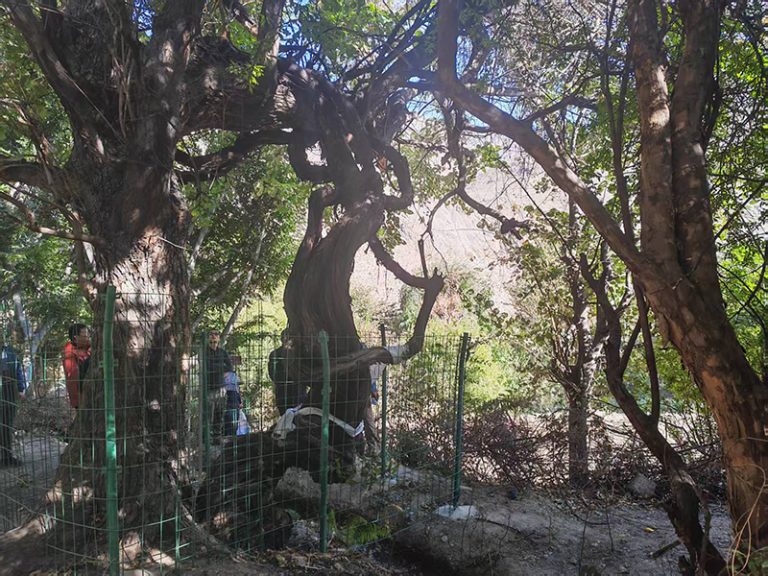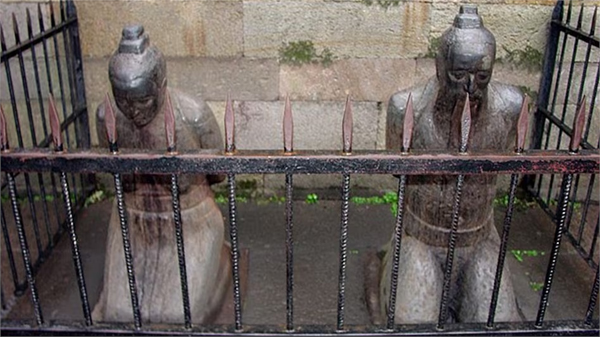In the remote Balinese village of Bengkala every one of the 3,000-odd residents can fluently communicate in kata kolok, a centuries-old sign language, and people with speech and hearing deficiencies are always treated with respect.
That so many people would bother to learn sign language might seem strange, but there’s a good reason behind the unique tradition – the number of hearing and speech impaired in Bengkala is about 15 times higher than the world average and it’s believed to have been even higher in the past. So it’s only natural that, in time, body language took precedence over words, and villagers developed their own unique sign language which has been passed on for centuries.
The high incidence of deafness is apparently caused by the geographically-centric recessive gene DFNB3, present in the village for over seven generations. Parents with normal hearing may have a deaf child, and deaf parents are known to have children who can hear perfectly well. Either way, it seems to make no difference to the villagers, who have long learned to treat everyone the same, without any kind of discrimination.
Photo: video caption
Some in the Balinese village don’t even perceive deafness as an abnormality, but as a gift from Dewa Kolok, the god of the deaf. He is believed to reside in a local graveyard, watching over and protecting his people. However, according to another local legend, the deafness is a curse. “The famous story is that two people with magic powers fought each other and then cursed each other to be deaf,” said Ida Mardana, mayor of Bengkala village. “The meaning of Bengkala is ‘a place for someone to hide.’”
Today, 42 kolok (deaf and mute villagers) form a community in the village, headed by Nyoman Santiya. Instead of being discriminated against or pitied, they are regarded as physically stronger, resilient, more loyal and honest. Their qualities are so renowned within Bali that people from neighboring communities often come to them for shelter and protection in tough times. They are also recruited as ‘hansip’ (civilian guards) and ‘pecalang’ (traditional Balinese security guards).
Photo: video caption
According to I Made Cincin, a village official, the kolok guards are more disciplined and efficient than other guards. “If we ask them to come to work at 7 a.m., they usually come earlier,” he said. “And they also have a good memory of the history of our village.” He added that the koloks can get quite aggressive if they witness something unfair. “If someone cheats during a cock fight, the kolok will not hesitate to hit him. If the kolok catch a thief, they beat him up badly, because they don’t hear his screams.”
But he explained that those are worst-case scenarios. Koloks are usually patient and good-natured people. “Even if someone pesters them, they don’t react. Sometimes we tap them on the shoulder to attract their attention, they don’t seem to mind.” Although they’re small in number, the rest of the villagers don’t find it difficult to communicate with the koloks at all, as they’re all skilled in kata kolok and manage to hold conversations without any difficulty. The people of Bengkala all make sure to teach their children kata kolok as a second or third language, so the tradition never dies.
Photo: Web.id
“Deaf students learn together with the hearing students here,” Mardana said. “The teacher uses speaking and sign language at the same time.”
According to VICE writer Matt Alesevich, “the younger generation of deaf in Bengkala have started to embrace new forms of communication – smart phones, social media, and international sign language.” Some of them have even enrolled in a nearby deaf boarding school, where they learn Indonesian sign language and interact with a larger community of deaf people in the country. Despite these efforts only five deaf villagers in Bengkala are literate, a fact that Mardana wants to change.
Photo: video caption
“The kolok want to be better people,” he said. “I want them to start getting involved with the community, so they can help themselves and get a better income.”
Over the years, Bengkala has seen a host of international visitors – sociologists, and even deaf tourists, who come to study or simply witness the one-of-a-kind society. The town’s biggest attraction is the ‘janger kolok’ or ‘dance of the deaf’ – a style of dance developed specifically for the kolok people. For the past 30 years or so, 16 janger kolok dancers have taken the stage about three times a month to perform synchronised dance routines, stepping perfectly in time with each other, using nothing but visual cues to keep the beat.
The dancers have performed at a local university and once even at Bali Krishna, a modern exhibition hall in northern Bali. Mardana said that the profits from such events are given to the dancers, so they can keep up the art form and eventually boost tourism.
As Alesevich reports: “The village wants to increase the income of the deaf population, but they also want to increase tourism to the village, to expose others to the ‘oneness’ between deaf and hearing people in Bengkala.”
Sources: VICE, Azimuth Travel, The Jakarta Post
















